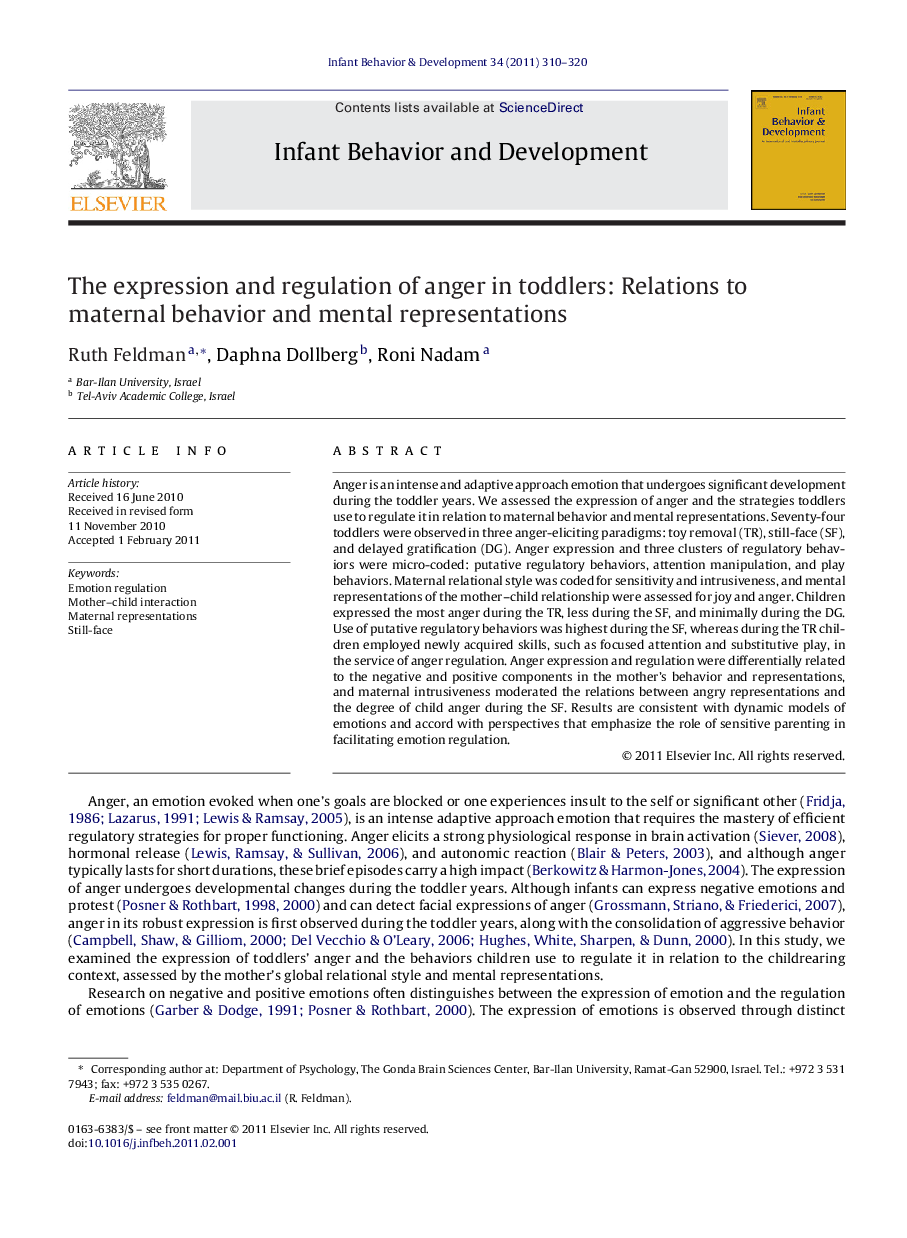| Article ID | Journal | Published Year | Pages | File Type |
|---|---|---|---|---|
| 917394 | Infant Behavior and Development | 2011 | 11 Pages |
Anger is an intense and adaptive approach emotion that undergoes significant development during the toddler years. We assessed the expression of anger and the strategies toddlers use to regulate it in relation to maternal behavior and mental representations. Seventy-four toddlers were observed in three anger-eliciting paradigms: toy removal (TR), still-face (SF), and delayed gratification (DG). Anger expression and three clusters of regulatory behaviors were micro-coded: putative regulatory behaviors, attention manipulation, and play behaviors. Maternal relational style was coded for sensitivity and intrusiveness, and mental representations of the mother–child relationship were assessed for joy and anger. Children expressed the most anger during the TR, less during the SF, and minimally during the DG. Use of putative regulatory behaviors was highest during the SF, whereas during the TR children employed newly acquired skills, such as focused attention and substitutive play, in the service of anger regulation. Anger expression and regulation were differentially related to the negative and positive components in the mother's behavior and representations, and maternal intrusiveness moderated the relations between angry representations and the degree of child anger during the SF. Results are consistent with dynamic models of emotions and accord with perspectives that emphasize the role of sensitive parenting in facilitating emotion regulation.
Research highlights► Toddlers’ anger is context dependent and is highest in situations perceived as unfair. ► Anger episodes are brief but longer periods are devoted for regulating anger. ► Maternal sensitive behavior and positive attachment representations predict less anger and better regulation. ► Maternal intrusive behavior and angry representations predict more anger and less adaptive regulation.
